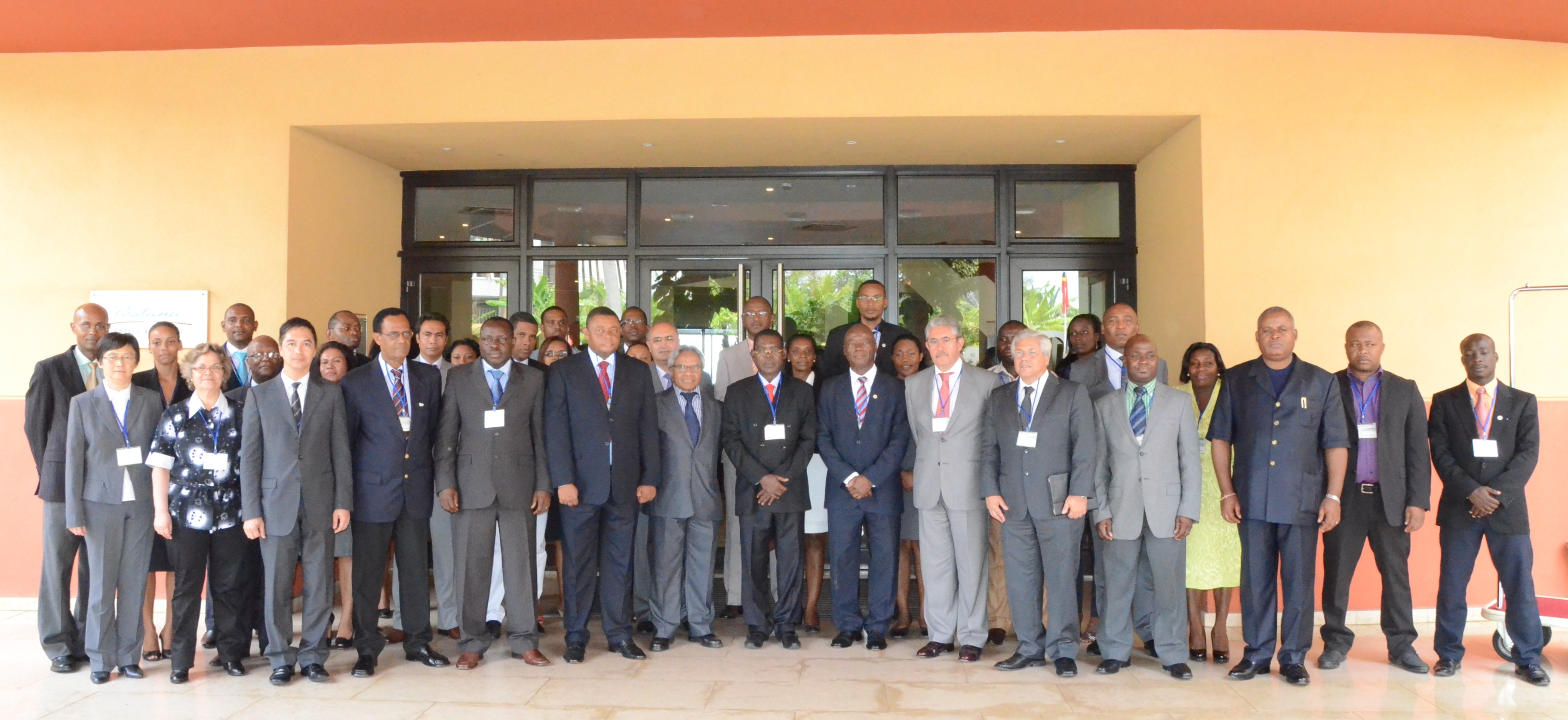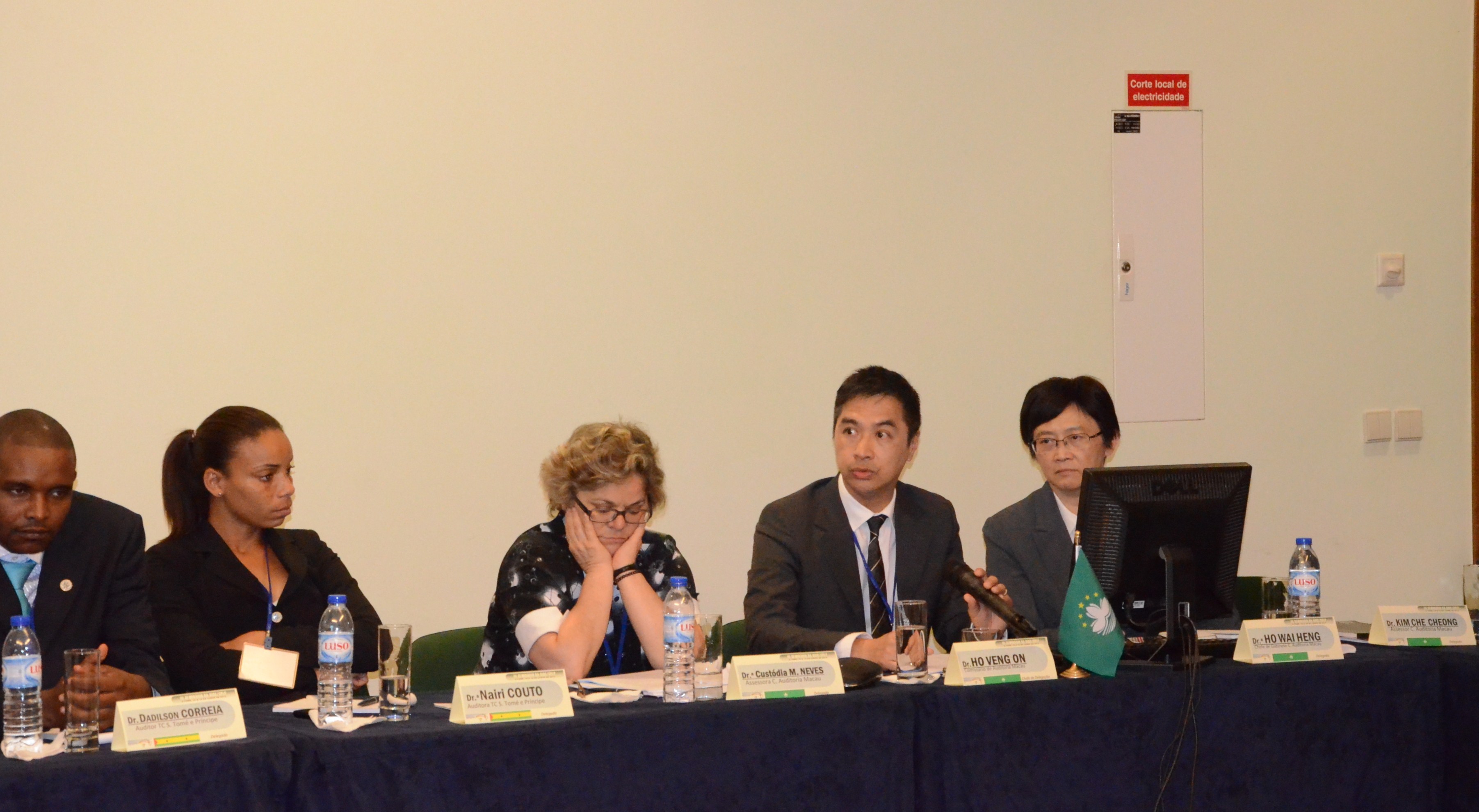At the invitation of the Organization of Supreme Audit Institutions of the Portuguese Speaking Countries Community (OISC/CPLP), the Commissioner of Audit, Ho Veng On, took part in its third technical seminar, held last week in S.Tomé e Príncipe, whose general theme was “Citizens demand the application of public money be audited by supreme audit institutions”. The Commissioner of Audit and representatives of the eight participating countries presented communications on their respective home situation and exchanged ideas and experience.
In his intervention, Ho Veng On underlined that citizens of today’s society considerate a government as good government when it accepts the audit and supervision conducted by an independent audit institution, which could ensure the public money is applied effectively, which implies transparency, accountability and good results; a good government should also manage the public resources — human resources, financial resources, material resources and environmental resources — ethically and responsibly.
Ho Veng On emphasized the main attribution of Macau’s Commission of Audit as performing external and independent supervision on the public accounts in order to promote good and effective public governance and, by this way, enabling the citizens to exercise their civil rights and to satisfy their legitimate demands as taxpayers. He stressed that transparency and accountability are two important features of a good public administration and, at the same time, two essential principles that make possible the supervision on effective application of public resources. The examination on the public accounts performed by an external audit institution enables the citizens in knowing whether the public resources are being managed legally, regularly, totally, transparently, responsibly and effectively. Meanwhile, public management and government policy are subject to frequent readjustments and, on the other hand, citizens are having higher and higher expectations on accountability. These two facts pose new and far reaching challenges to public audit, especially in regard of sustainability of the public finances, social security, environmental audit, continuous audit on big public projects and prevention of fraud and fiscal evasion.
Commissioner’s points of view expressed in the communication have been well accepted by other participants and have been included in the seminar’s conclusions.
Participants in the seminar of OISC/CPLP included the supreme audit institutions of Angola, Brazil, Cape Verde, Guiné-Bissau, Mozambique, Portugal, S.Tomé e Príncipe and East-Timor. Macau took part as observer of the organization.



